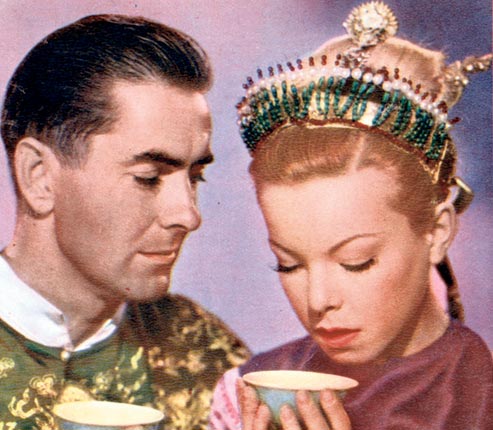Cécile Aubry: French actress who went on to create the much-loved children's TV series 'Belle et Sébastien'

Your support helps us to tell the story
From reproductive rights to climate change to Big Tech, The Independent is on the ground when the story is developing. Whether it's investigating the financials of Elon Musk's pro-Trump PAC or producing our latest documentary, 'The A Word', which shines a light on the American women fighting for reproductive rights, we know how important it is to parse out the facts from the messaging.
At such a critical moment in US history, we need reporters on the ground. Your donation allows us to keep sending journalists to speak to both sides of the story.
The Independent is trusted by Americans across the entire political spectrum. And unlike many other quality news outlets, we choose not to lock Americans out of our reporting and analysis with paywalls. We believe quality journalism should be available to everyone, paid for by those who can afford it.
Your support makes all the difference.While French television is full of British-originated series, few French programmes have travelled in the opposite direction.
But the actress Cécile Aubry created and directed the engaging children's serial Belle et Sébastien, France's most popular TV export after The Magic Roundabout in the 1960s. Starring Mehdi, Aubry's son by Si Brahim El Glaoui, the eldest son of the pasha of Marrakesh, it tells the story of an orphan, Sébastien, who befriends a Pyrenean Mountain Dog, Belle. First shown on the BBC in 1967, the wholesome black-and-white series is fondly remembered by British children, and inspired the Scottish indie band Belle and Sebastian to name themselves after the show.
Born into a bourgeois Paris family in 1928, Aubry was one of the great screen beauties of her day. She studied dancing and acting at Le Cours Simon in the French capital and caught the eye of Henri-Georges Clouzot, who cast her as the femme fatale collaboratrice in Manon, his 1949 adaptation of the Abbé Prévost novel Manon Lescaut. The film won the Golden Lion at the Venice Mostra. "I had been rather shy, and there I was propelled into the limelight," said Aubry in 1990.
The following year, after 20th Century Fox put her under contract, she adorned the cover of Life magazine and more than held her own as Maryam amid the starry cast – Orson Welles, Tyrone Power, Jack Hawkins – of The Black Rose, an epic shot in England and Morocco. Aubry met El Glaoui when he visited the film set in Morocco and they began a romance that led to a marriage that was kept secret for several years. "It was a sort of clandestine relationship. I didn't show myself in public with him, I lied to everybody. It was very trying," she later reflected.
In 1951, she was Aline in Barbe-Bleue, Christian-Jaque's retelling of the Bluebeard story, and subsequently appeared in films made in Italy, Germany and Spain. By 1956, Aubry had given birth to Mehdi, but was estranged from El Glaoui and was back in France. She began writing children's books, and adapted them for television, starting with Poly, about a boy and his pony, in 1963, and then Belle et Sébastien in 1965. Mehdi proved a natural in both serials, while Aubry appeared as a narrator in the latter.
"Within a couple of weeks, we had sackfuls of fan letters," Aubry said of Belle et Sébastien's success at a time when France only had one television channel. She moved the story on with two further series in colour, Sébastien Parmi Les Hommes – retitled Belle, Sebastian and the Horses by the BBC – in 1968, and Sébastien et la Mary-Morgane in 1970. Three years later, Mehdi became Le Jeune Fabre, a 17-year-old trying to find a job and to deal with the pangs of first love. As well as writing and directing, Aubry was the lyricist of "Le Peintre des Etoiles", Le Jeune Fabre's theme song by Demis Roussos, which proved nearly as memorable as "L'Oiseau", the Belle et Sébastien tune sung by Mehdi.
In the Eighties, an anime adaptation of Belle et Sébastien, called Meiken Jolie, was screened in Japan, France, Italy and the US. In 1992, Aubry wrote the screenplay for Rendez-Vous à Lisbonne, one of the instalments of the Coup de Foudre ("Love at First Sight") strand on French television.
Anne-José Madeleine Henriette Bénard (Cécile Aubry), actress, writer, director: born Paris 3 August 1928; married Si Brahim El Glaoui (one son, marriage dissolved); died Dourdan, Essonne 19 July 2010.
Join our commenting forum
Join thought-provoking conversations, follow other Independent readers and see their replies
Comments